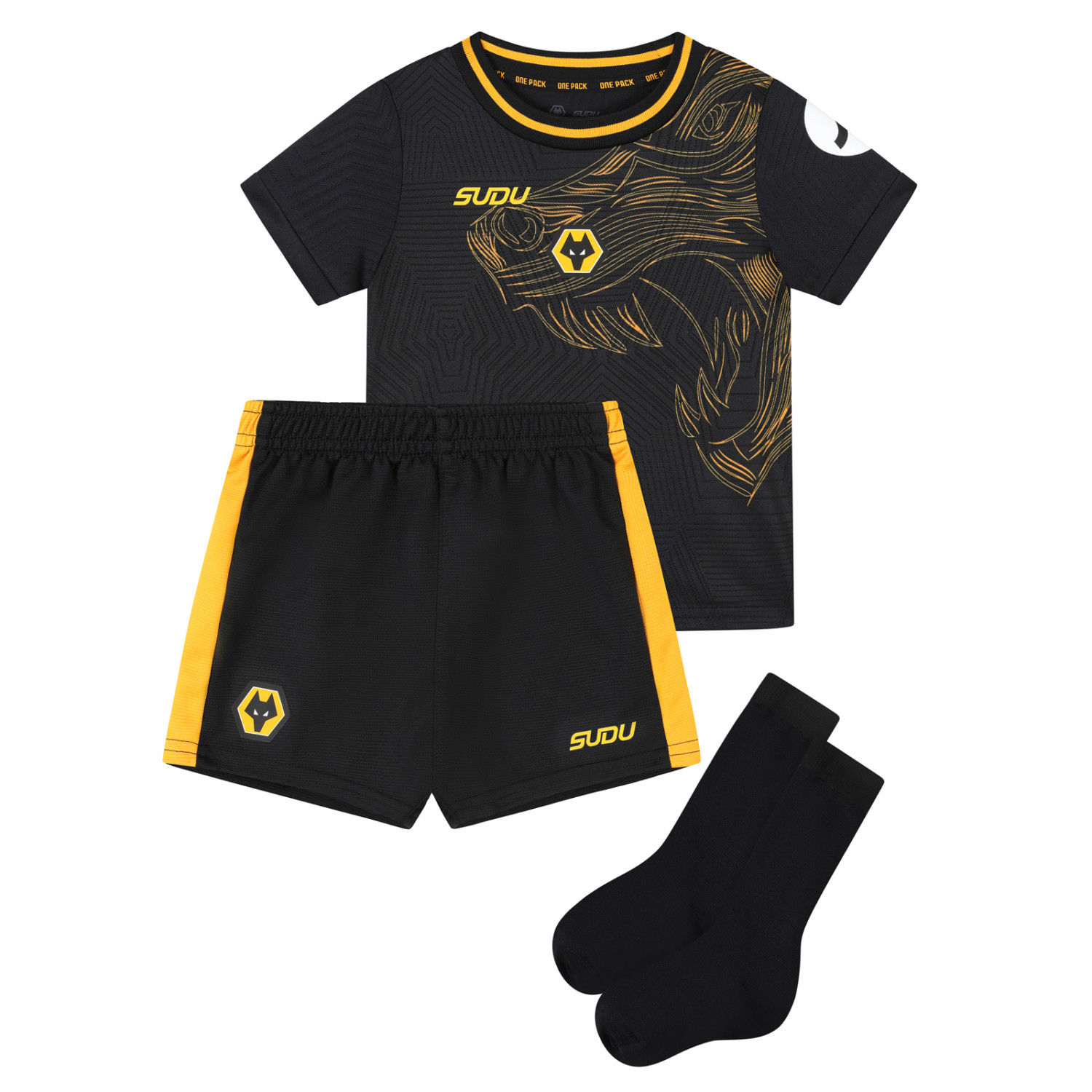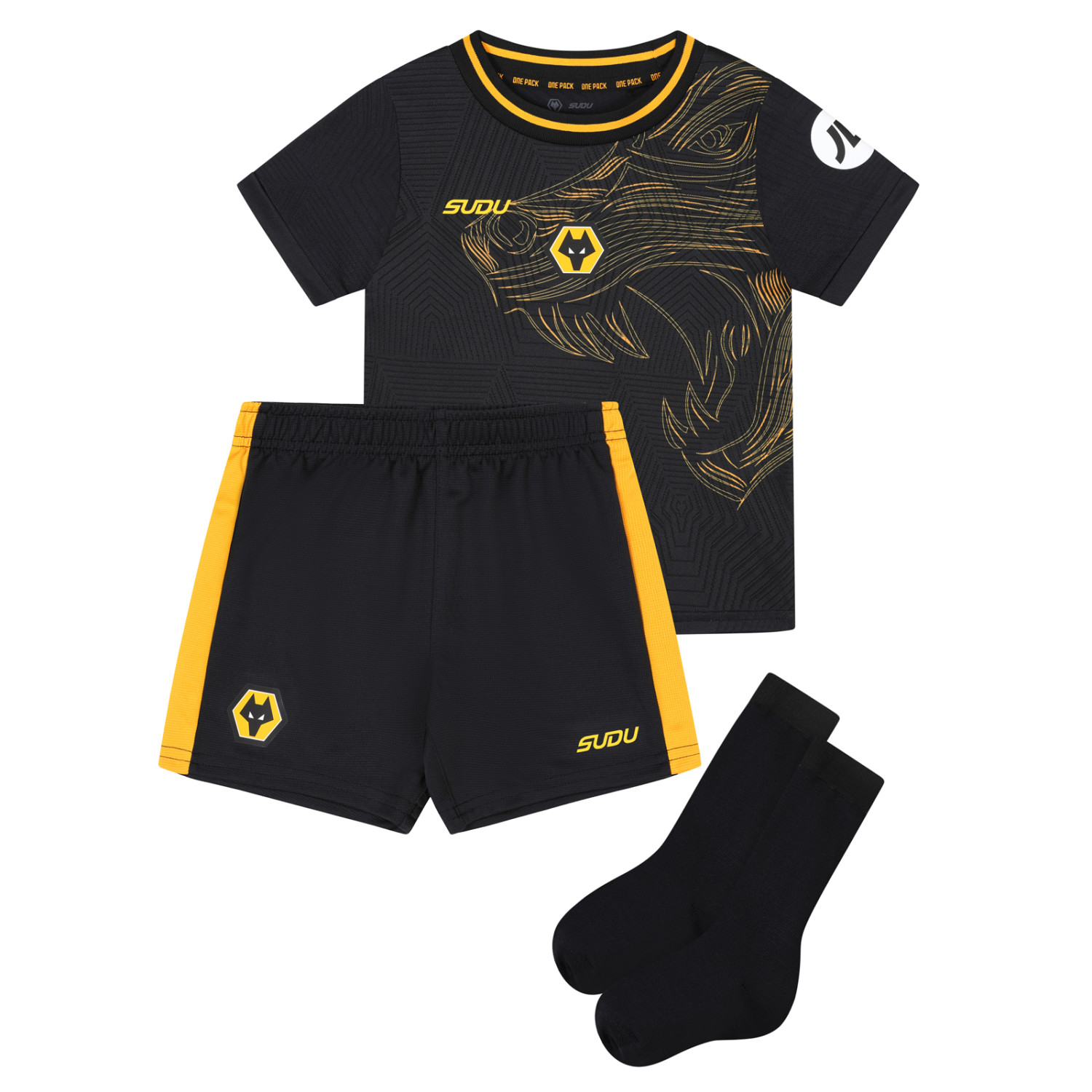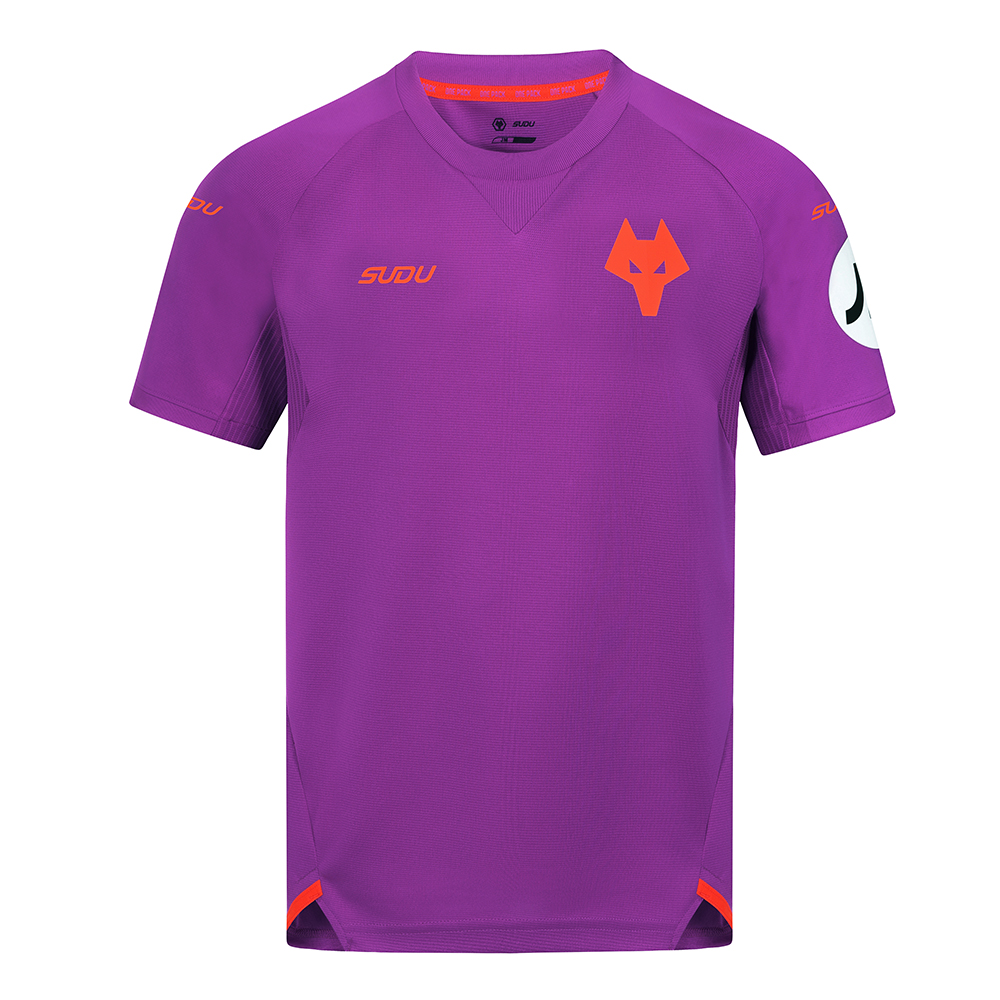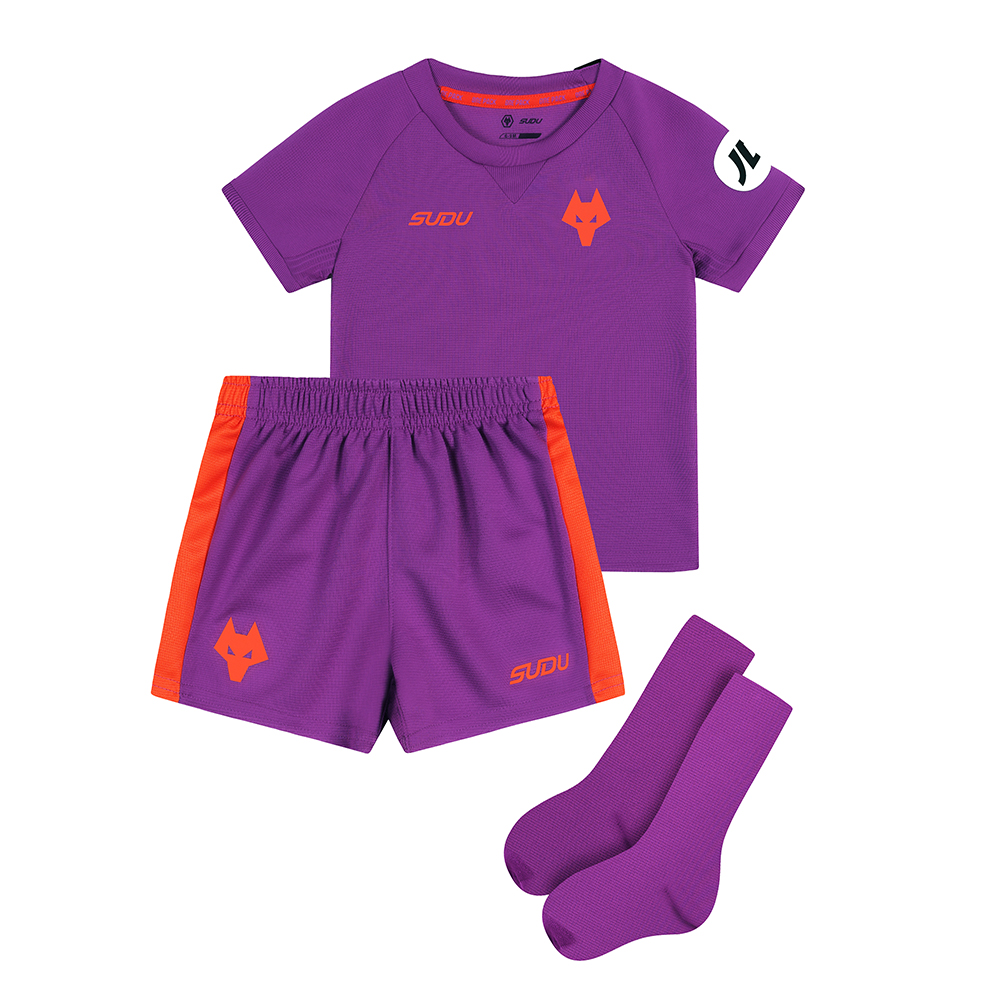This has seen an evolution in the club’s performance and medical department, with former England national team doctor and chief medical officer of UK Athletics, Dr Rob Chakraverty, leading the group as head of performance and medicine.
Chakraverty said: “When we were looking at how we felt the structure could be improved, we felt that the identity of the performance and medical department at Wolves had been very dependent on the incumbent coach.
“The last head coach brought in his own staff and their own ways of working, which transformed the club, but they have left and Wolves needed to rethink to take the club forward.
“Jeff [Shi, executive chairman] and Scott [Sellars, technical director] wanted the new head coach to bring in their necessary staff, but they also want us to create a new Wolves’ identity that is robust, where the infrastructure, the processes and the ways of working flourish regardless of the head coach and which staff were in place.
“As a performance and medicine department, we need to support the coaching team in the way they work, but we also need to create something that provides more consistency and has longevity.
“To achieve that, we put a plan together for what structure we needed and the staff we would need for this to be successful.”
The new structure now in place at Wolves sees Chakraverty leading a small management team of three new recruits – Dr Kai Win (first-team doctor), Tom Farrow (head of sport science) and Ben Macdonald (head of physiotherapy, pictured below) – alongside long-serving club doctor, Dr Matt Perry, who has transitioned to the role of head of medical services.
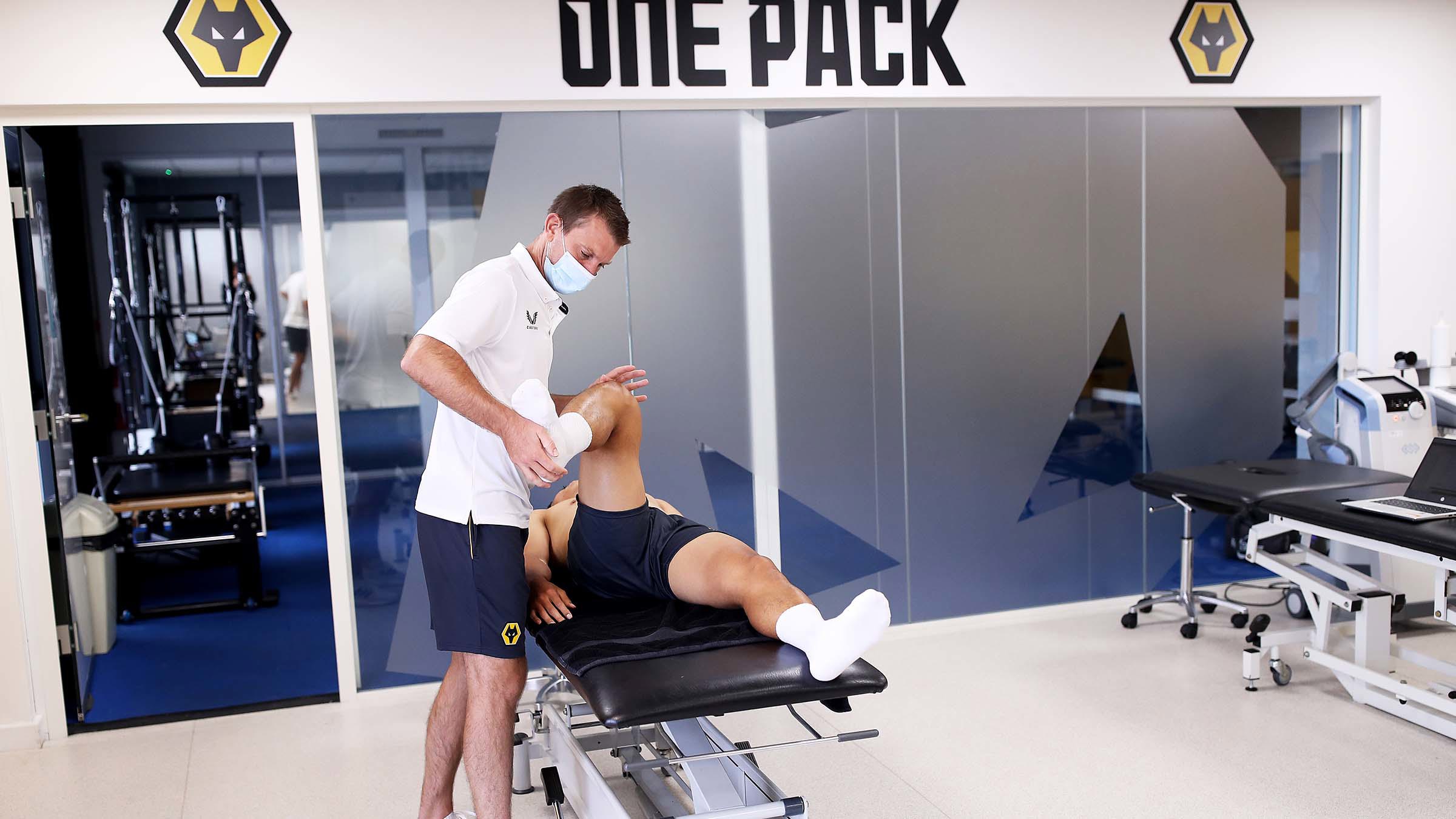
“In his new role, Matt can make sure the backbone of the club is taken care of,” Chakraverty explained. “It’s a very strategic direction for us to go, ‘these are his strengths – he’s Wolves, he’s the history’ and without him, we couldn’t do this job.
“He will ensure we are looking after all aspects of the players’ health throughout the club, including, but by no means limited to, players’ cardiac screening, their immunisations, their blood tests and our clinical governance, because unless these are taken care of, we cannot be in a position to concentrate efforts on the performance side.
“For physical performance and injury prevention, we needed a head sports scientist, a head physio, and a first-team doctor to allow Matt and I to move into our new roles.
“To create the support team we needed, we appreciated the need to strike a balance between those people who have a lot of football experience and those with other elite sport experience. This allows for diversity of thought where people with new ideas can check and challenge the status quo.
“Unless you’ve experienced being outside football, those questions often don’t get asked and other ways, not considered.”
With Wolves already employing staff who have vast expertise in football performance and medicine, Chakraverty’s recruitment strategy for the new roles was to consider people who were at the top of other sports.
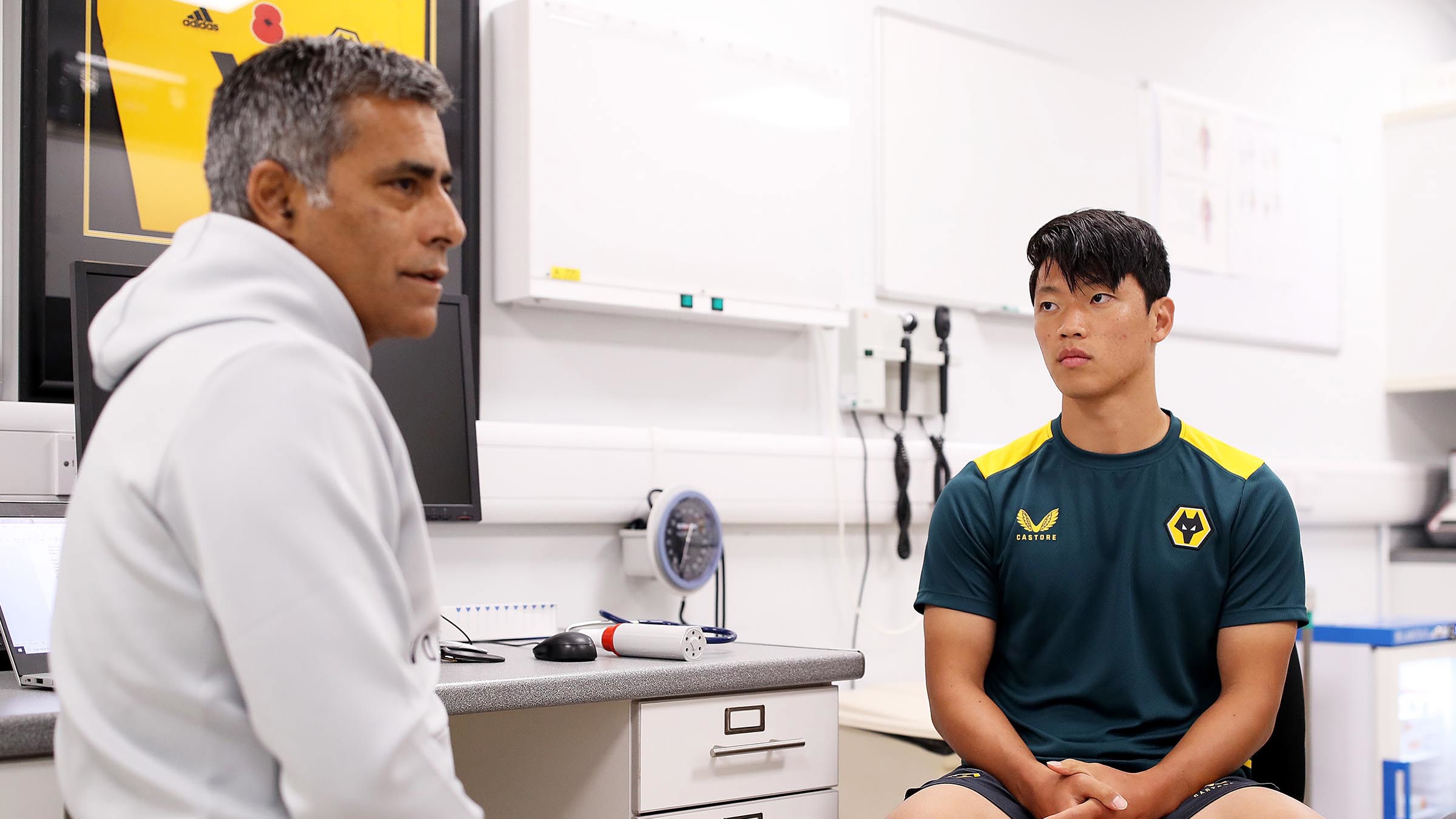
Farrow, Wolves’ new head of sports science, has experience of physical performance coaching in a rugby and athletics setting. Formerly strength and conditioning coach with England and Team GB Rugby 7s, he has also spent time at Premiership outfit Wasps.
Head physio Macdonald also has previous experience working in rugby with Worcester Warriors, and has now joined the club having returned from the Olympic Games in Tokyo with the Great Britain Cycling team, having also worked in athletics and Paralympic sport.
The in-coming first team doctor, Win, who will join the club in September, is presently first-team doctor at Birmingham City, and Chakraverty has experience of working alongside her at the FA, where she worked in the England Women’s pathway.
Another key addition is that of Dr Kate Ludlam (pictured below) who joins as first-team performance psychologist, having previously worked with Wolves Academy. She has also just returned from the Olympics in her role with GB Boxing.
“We’re trying to create a freshness, to bring in people with brilliant minds, open minds, and who may well have strong ideas but who have the humility to hold them loosely, meaning they don’t have to cling onto those ideas regardless of the situation we are in. They can throw the ideas in and if they don’t stick, then they are agile enough to move on and come up with the next idea. They have that flexibility.
“However, it’s not only their experience we were looking for, but also the kind of person they are and if they fit Wolves’ values. Everyone we’ve brought in must hit the five Wolves values – progressive, bright, humble, unity and determined. They have to fit into the team well, and the new people who have come in have made a big difference already.
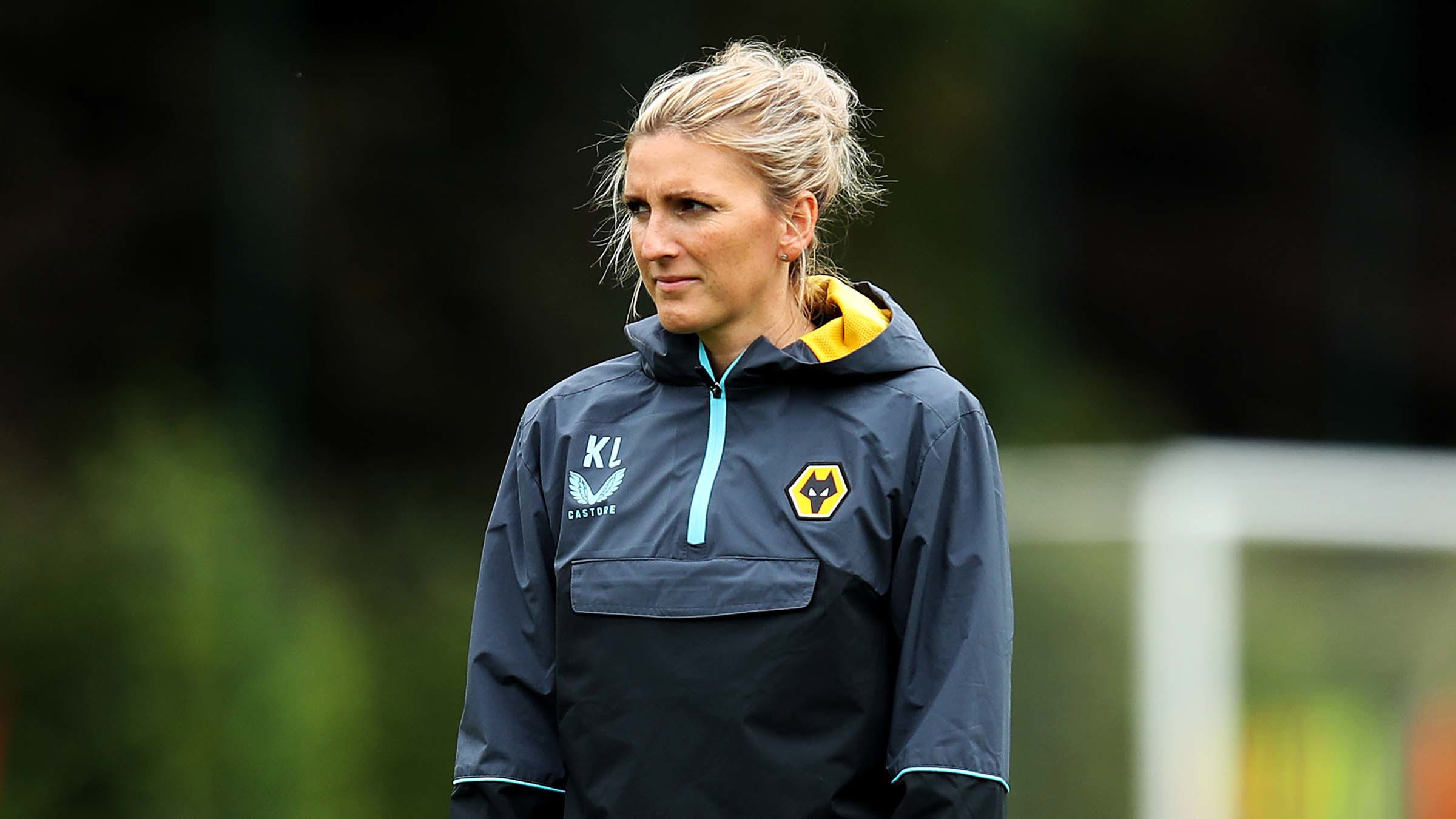
“We’re not making wholesale changes,” Chakraverty added, “we are bringing direction, but will remain connected with our present first team staff who have brought the club so far in recent years.
“Many of the performance and medicine staff who played a large part in the first-team’s success over the last few seasons – including a first season in the top-flight which saw Wolves top the list of injury prevention and recovery, with the least number of players missing action – remain integral to the new structure.
“We already have a real blend of experience and talent within the existing medical (Ollie Leaper and Carlos Sales (pictured below), Rui Fuste, Luke van Zyl, Danny Fishwick and Matt Wignall) and sports science (Sean Miller, Tom Male and Kieron Morrissey (pictured with Jimenez below)) teams. Maintaining the services of performance nutritionist, Mayur Ranchordas and the introduction of new head chef, Melissa Forde, too, are also key.
“In addition, making sure we are more connected than ever with the Academy is an important part of the strategy; what we aim to do at first-team level must be supported in the Academy under the guidance of head of academy medicine, Pauline Robertson, and head of academy sports science, Dave Morrison.
“Wolves is, and continues to be, a very humble club. It’s a family-orientated club, which may appear to be punching above its weight, but we’ve got to develop that ‘big club’, elite-sport mentality within that framework to become more consistent. We can’t go all out, thinking it’s all about success and in so doing, lose what Wolves is all about, but we do need to refocus.”
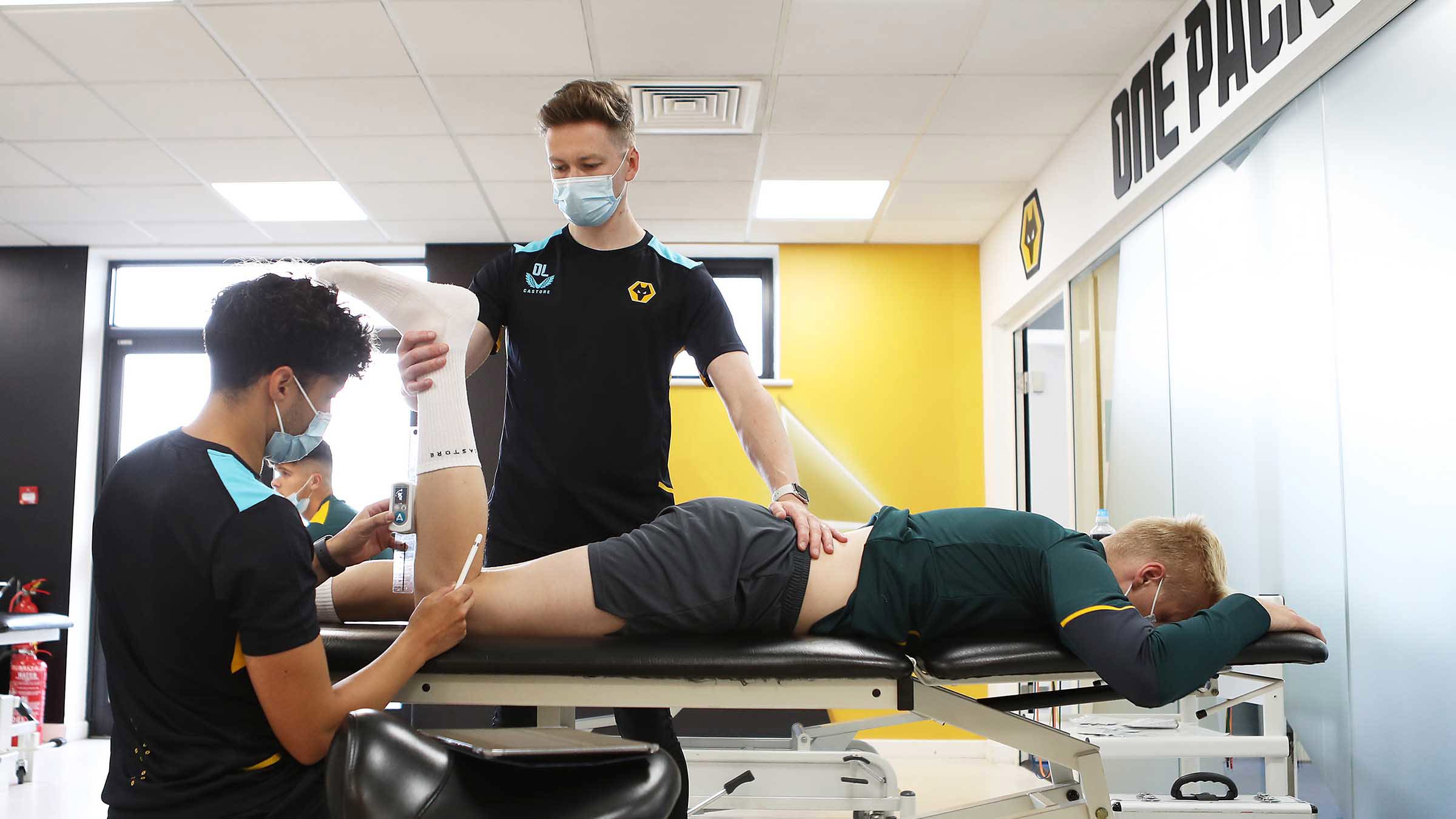
Regarding staff, there was one new role which Chakraverty prioritised following a difficult 18 months.
“When I was asked what was the first member of staff I wanted in, it was a nurse, without question,” he said. “Someone who could assist with a lot of the heavy responsibilities for managing Covid issues at the club because that proved to be such a pressure for a lot of other Wolves staff last year, as it has for all the other clubs and indeed the country.
“Last season, although we tried, we weren’t able to put as much time into performance because we were getting pulled in all different directions around managing everything to do with the virus, whether that was regarding players or staff with infection, contact isolation or implementing protocols. We felt we needed someone in post who could be the focal point to take a shared responsibility in dealing with all these related issues.
“Now we are into our second full season where Covid remains a significant factor, that role remains an important one. However, we have since looked at extending this role to become much more, a role that looks at all aspects of the health protection of all our players throughout the club and we have been lucky enough to have found a great appointee, Michelle Rich who comes from an NHS background.
“She will work within the medical services team with Dr Perry and Sherley Fang, to significantly improve our capability of looking after the staff and players going forward, and in so doing, freeing up other support staff to concentrate their efforts in their primary role.”
Although last season may not have been deemed as successful as Wolves’ previous two campaigns in the Premier League, the end position maintained the club’s Premier League status, and at the start of this pre-season, Chakraverty sat down with his restructured performance and medicine team to analyse what went right in the past and what can be learned.
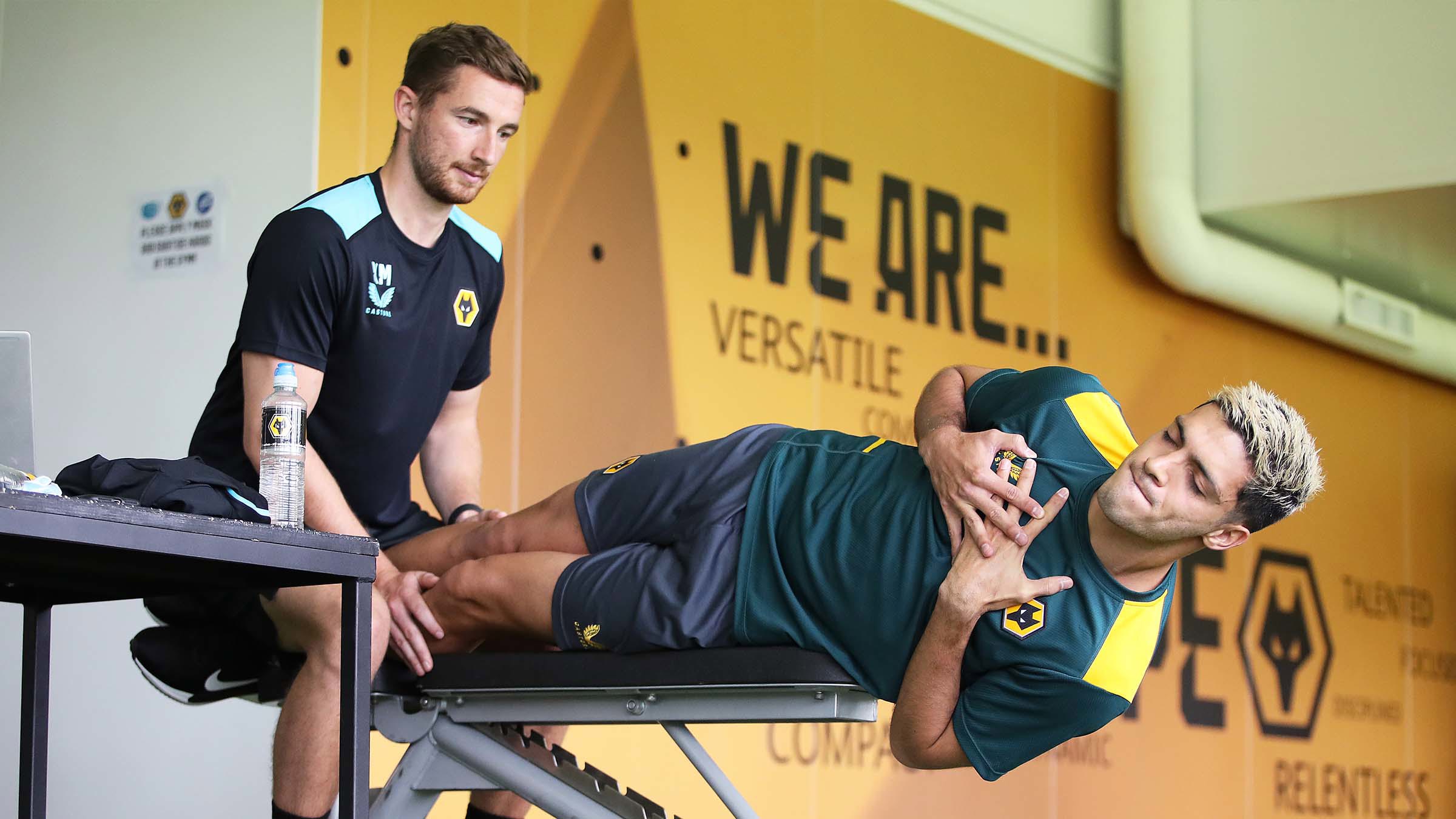
“We did a lot of reflection looking back at the success of our most recent promotion and the first years in the Premier League, but we also looked back at last season and how we should move forward.
“We asked the performance and medicine staff how they wanted to feel coming into work each day, not just how we would incorporate new ways of doing things, but how it felt to each and every one of them coming to work.
“The staff said for the few years before last season, it felt like being on the crest of a wave, it was tough, but it was exhilarating – they felt they couldn’t lose.
“That contrasted to last year, where we heard phrases like ‘frustrating’, ‘very long and challenging’, ‘tough and hard’. There were lower performance expectations, the group were less confident, it felt joyless and there was far more stress.
“There were many external factors and barriers that impacted the season, such as the pandemic of course, but the staff also felt they were going non-stop after such a long 2019/20 season, hardly any break and a significantly truncated preseason. Last year it was hard to establish a rhythm and it was of course disappointing in terms of our performance.
“But nobody wants to feel like that going forward; we want to feel that freshness and energy; to feel connected. We want the players to be healthy, the staff to be healthy and we want it to be fun. We want to be chasing goals and we want to feel that we, as a team, are getting better and better because that’s going to have an impact on what’s happening on the pitch.
“A big part of our identity has to be based on how it feels to come into work, not just for the staff, but for the players as well, and how they feel when they come in the building.
“We want to make it an environment that has comfort and familiarity, but one which is also a real elite performance environment – when you come in here, it’s special, it’s about performance. We push each other to be the best we can; players and staff.”
The early signs of pre-season and working alongside a new head coach in Lage have been positive for Chakraverty and his team as they look to overcome the challenges that the 2020/21 season presented, especially regarding the increased rate of injuries the players suffered.
“When it comes to minimising the impact of injuries on the progress of clubs, it’s always a question of really good communication between medical, physio, science and coach, with the player central,” Chakraverty explained.
“Injuries occur in football as in all sports. It is a joint responsibility. Everyone takes responsibility for success, and everybody has to take responsibility, more importantly, for failure, and you learn from it every single time; and usually, communication –or lack of, or fear of – is an underlying factor.
“It’s been a really exciting challenge so far and I am looking forward to us progressing as a support team and get better and better and better.”














